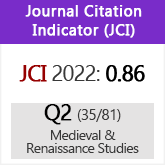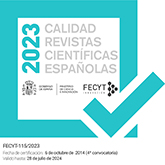Noblesse urbaine et féodalité: les citoyens catalano-aragonais feudataires en Sardaigne aragonaise (1324-1420)
DOI:
https://doi.org/10.3989/aem.2002.v32.i2.253Keywords:
Feudal lords, feudalism, citizens, ennoblements, Crown of Aragon, 14th century, SardiniaAbstract
This study presents a portrait of the Catalan-Aragonese feudal lords of Sardinia between 1324 and 1420 who originated as citizens. A brief outline of the number and importance of citizens owning feudal property, which were stablished with the introduction of feudalism on the island, is followed by a social profile of these citizens. Then, a discussion of the fiefs possessed on the island and, in particular, the value of feudal rents until 1358 makes evident who the most prominent of the urban nobility were. This study explains how from 1355 forward the politics of Pedro IV reduced the number of citizen-owned feudal properties and. subsequently, introduced a change in the status of some citizens with the confering of titles of knighthood on the island. The article concludes with a biography of one family, the Oulomar.
Downloads
Download data is not yet available.
Downloads
Published
2002-12-30
How to Cite
Crabot, C. (2002). Noblesse urbaine et féodalité: les citoyens catalano-aragonais feudataires en Sardaigne aragonaise (1324-1420). Anuario De Estudios Medievales, 32(2), 809–843. https://doi.org/10.3989/aem.2002.v32.i2.253
Issue
Section
Monographies
License
Copyright (c) 2002 Consejo Superior de Investigaciones Científicas (CSIC)

This work is licensed under a Creative Commons Attribution 4.0 International License.
© CSIC. Manuscripts published in both the printed and online versions of this Journal are the property of Consejo Superior de Investigaciones Científicas, and quoting this source is a requirement for any partial or full reproduction.All contents of this electronic edition, except where otherwise noted, are distributed under a “Creative Commons Attribution 4.0 International” (CC BY 4.0) License. You may read here the basic information and the legal text of the license. The indication of the CC BY 4.0 License must be expressly stated in this way when necessary.
Self-archiving in repositories, personal webpages or similar, of any version other than the published by the Editor, is not allowed.














